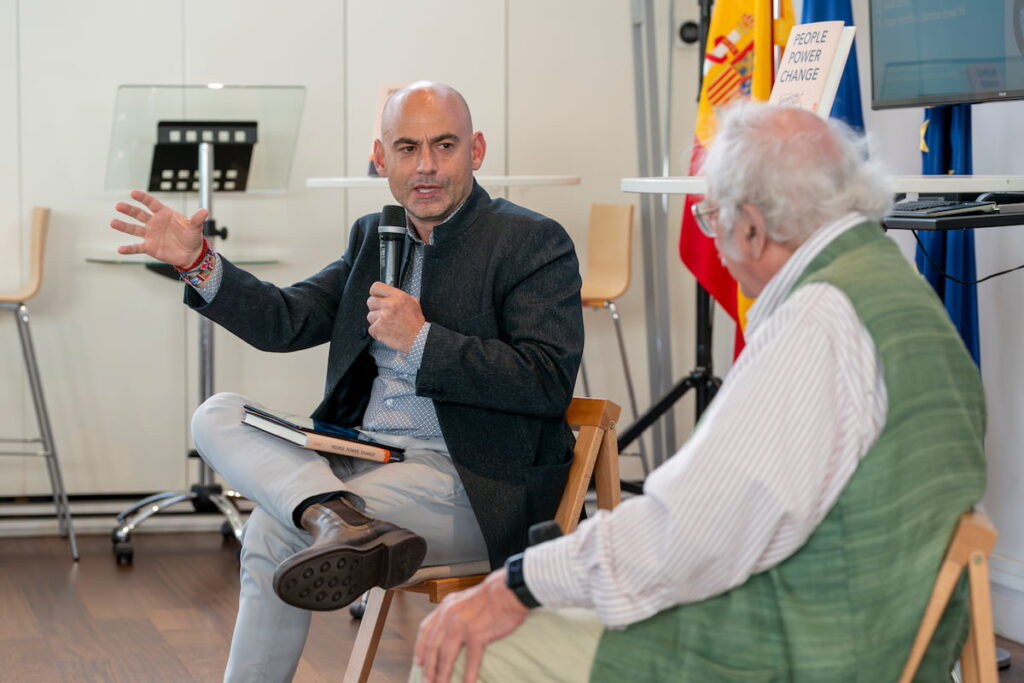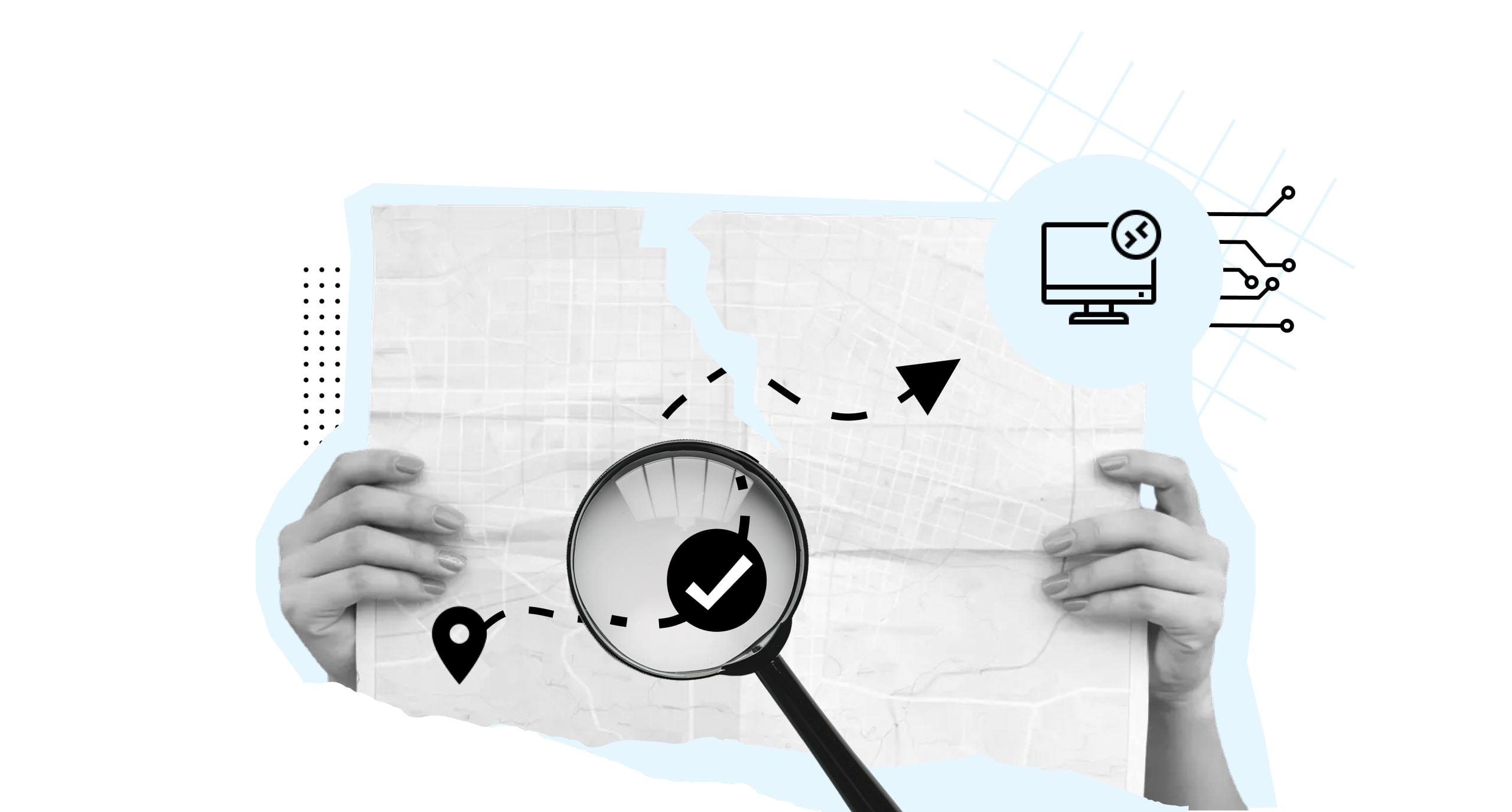What do you think when you hear “public policy”? Bureaucracy? Endless debates? Only government jobs? Scratch beneath the surface and you’ll discover a discipline shaping every sector—from sustainability and tech to business and international relations. With so much change, it’s never been more important to study public policy.
To get back to basics, we spoke with Borja Santos, Vice Dean at IE School of Politics, Economics & Global Affairs. He has expert insights on what the field really means—and how the new Master in Public Policy prepares you for impact.
Myth 1: A Master in Public Policy is only for those pursuing government careers
The idea that public policy is only for future politicians or civil servants is outdated. As such, the new Master in Public Policy goes beyond antiquated thinking. “The program empowers you to design, implement, and evaluate policies at the critical intersections of government, business and society,” says Borja. “It does so through the development of important skills such as critical thinking, strategic leadership and immersive hands-on experiences.”
Students tailor their path through one of three specializations—European Union, Environment, Energy & Sustainability or Digital Transformation. These tracks connect global challenges with real-world applications across sectors. “While collaborating in different projects, you’ll receive mentoring from leaders in both the public and private sectors. This allows you to become a dynamic and well-rounded leader in diverse areas beyond government.”
Myth 2: Public policy programs focus heavily on theory and lack practical application
Traditionalists want policy programs to be academic and abstract. The Master in Public Policy is built to do the opposite. “This program places a strong emphasis on practical immersion from the very beginning,” says Borja. “With diverse activities throughout the degree such as real-world policy simulations, stakeholder negotiations and projects, students are able to work on challenges that allow them to transform theory into practice.”
Students step into roles like consultants, strategists or analysts, working on policy issues with direct relevance. In doing so, they sharpen their critical thinking and teamwork—skills vital to cross-sector leadership. And with initiatives like Immersion Week, students gain firsthand exposure to the real world of public policy. “We take students on trips to some of the most important policy hubs,” says Borja. “These include the European Commission, UN agencies, NATO, or think tanks. All this allows students to see firsthand how policy works in real-world scenarios.”
Myth 3: You need a background in political science or public administration to succeed
Public policy is not exclusive to political science graduates. “The Master in Public Policy welcomes students from different academic backgrounds such as business, economics, technology, law, international relations, and beyond,” says Borja. “There’s no specific requirement for potential candidates to demonstrate a background in political science.”
The program begins with pre-courses in economics and quantitative skills to build a shared foundation. From there, electives and specializations let students deepen their knowledge in areas that fit their strengths and goals. “This diversity in academic and professional backgrounds fosters rich debates,” says Borja. “It also provides different and innovative approaches to problem-solving when faced with pressing global issues.”
Myth 4: Digital transformation and emerging technologies are peripheral to public policy studies
Technology now underpins governance and regulation, making it a central focus of the Master in Public Policy. “In today’s disruptive world, digital transformation has become a key pillar in policy-making. So it’s central throughout the program,” says Borja. “Students can specialize in Digital Transformation and Innovation, exploring AI, Big Data, and digital governance.”
“Students learn to design policies that drive innovation while addressing risks like bias, privacy and digital exclusion, ensuring they understand both the opportunities and risks of technological change,” says Borja. This uniquely positions graduates to connect the fast-moving world of innovation with ethics. “By putting technology and digital transformation as a central part of the curriculum, this is offering future policymakers a powerful advantage: the ability to bridge the gap between innovation and regulation.”
Myth 5: Global networks and international exposure are nice-to-have, not essential
Policy doesn’t happen in isolation. “Nowadays, all states are interconnected,” says Borja. “For this reason, it is important that policymakers understand the dynamics of the international sphere.” Most policy problems—like migration, trade and climate change—transcend international borders. So it’s important that those behind those decisions understand how they could have a ripple effect across regions and cultures.”
The program integrates this perspective through international faculty and cohorts. “With a student body that spans more than 140 nationalities, IE is a dynamic and diverse community,” says Borja. “Here, we prepare students to negotiate, collaborate, and innovate across different contexts. This global exposure not only enriches learning but also empowers them to integrate and excel confidently in multi-national or cross-cultural environments where major policy decisions take place.”
Reality: The future of public policy is cross-sector, global, and hands-on
The truth is that public policy has never been confined to government. Today, it’s about building bridges to tackle the problems we can’t solve in silos. And that’s exactly the purpose of our Master in Public Policy. With a foundation in rigorous analysis and a strong emphasis on immersive practice, it equips you to transform knowledge into measurable action.
The program will challenge you to confront the most urgent global issues. That could mean simulating negotiations on climate agreements, exploring how AI can reshape governance, or engaging with mentors from leading institutions.
At the same time, the diversity of the classroom itself becomes a learning space, pushing you to think across cultures and sectors in ways that mirror the complexity of global decision-making.

What makes the Master in Public Policy distinctive is this blend of intellectual depth and lived experience. You graduate not only with an understanding of political systems, economics, and data-driven governance, but also with the ability to design innovative solutions, navigate global institutions, and lead with purpose. In a world where policy challenges are increasingly interconnected, this program gives you the tools, the mindset, and the network to make a real impact—wherever your career takes you.
Study public policy with IE School of Politics, Economics & Global Affairs
Find out how the Master in Public Policy can transform your career.

Benjamin is the editor of Uncover IE. His writing is featured in the LAMDA Verse and Prose Anthology Vol. 19, The Primer and Moonflake Press. Benjamin provided translation for “FalseStuff: La Muerte de las Musas”, winner of Best Theatre Show at the Max Awards 2024.
Benjamin was shortlisted for the Bristol Old Vic Open Sessions 2016 and the Alpine Fellowship Writing Prize 2023.


















